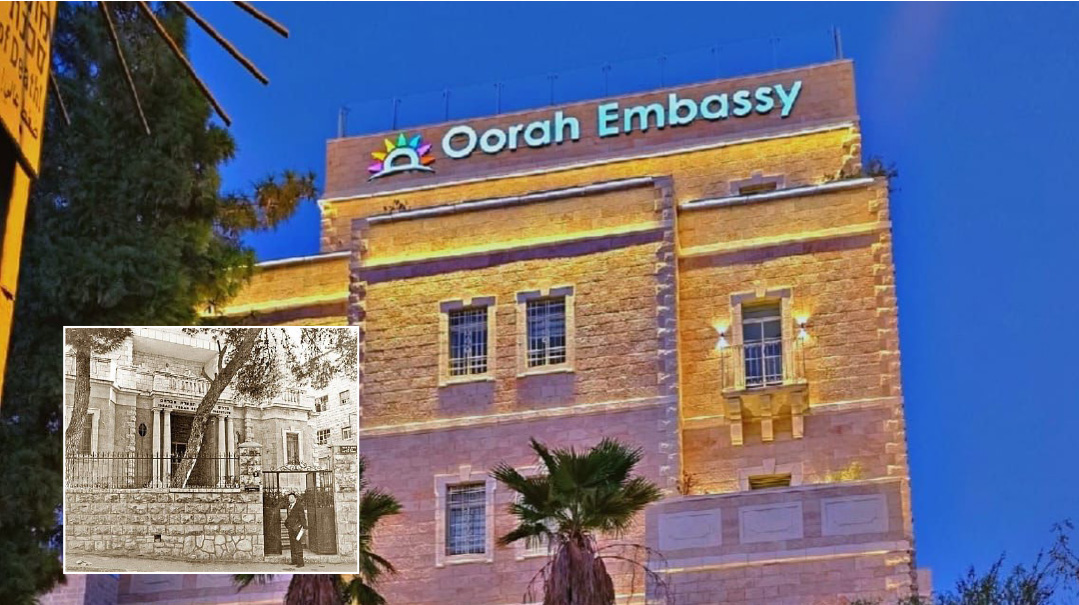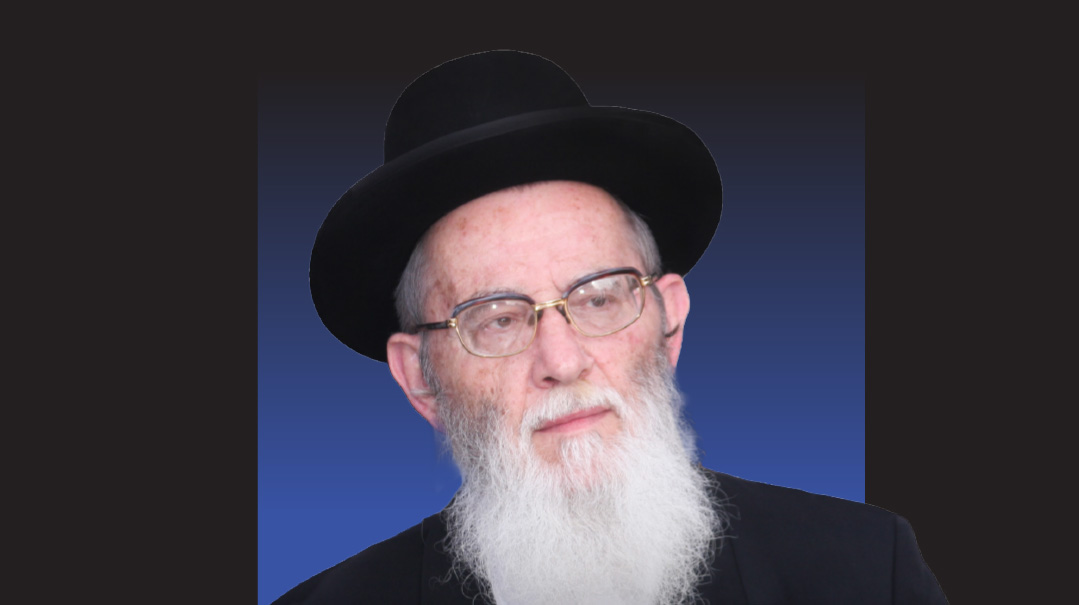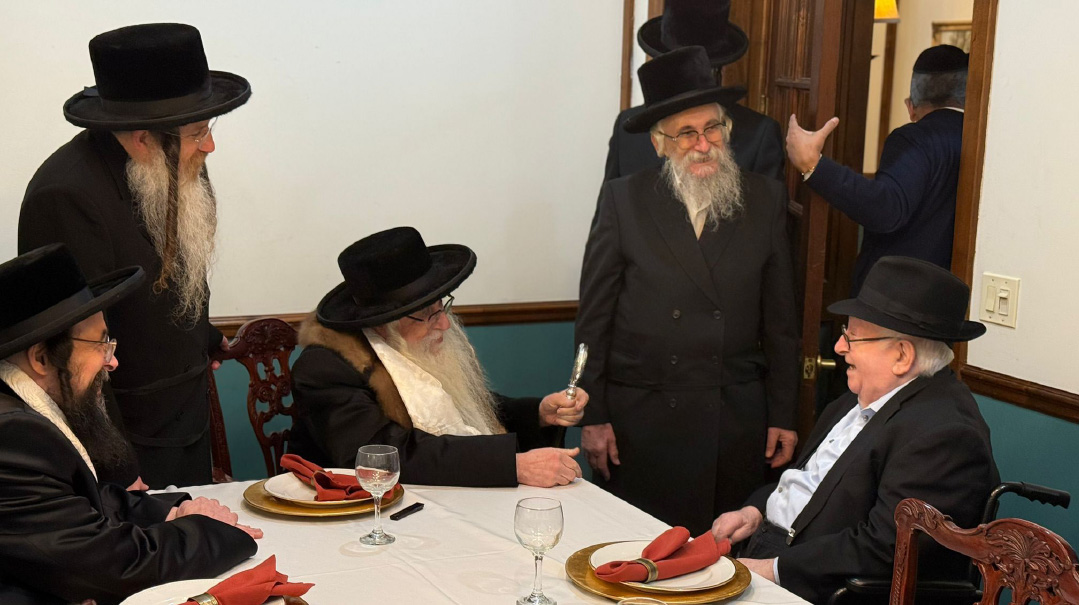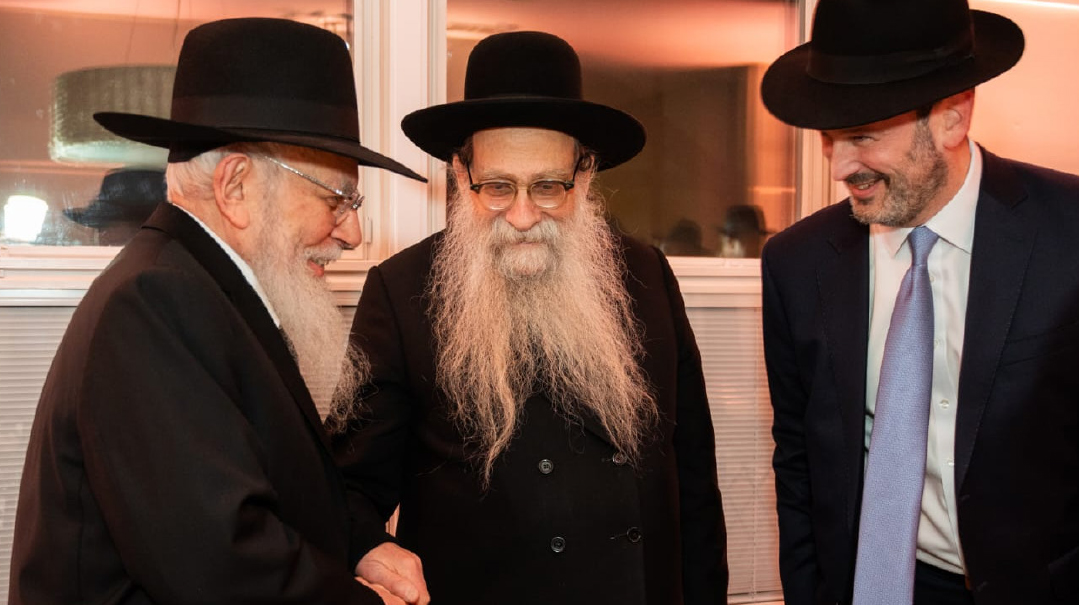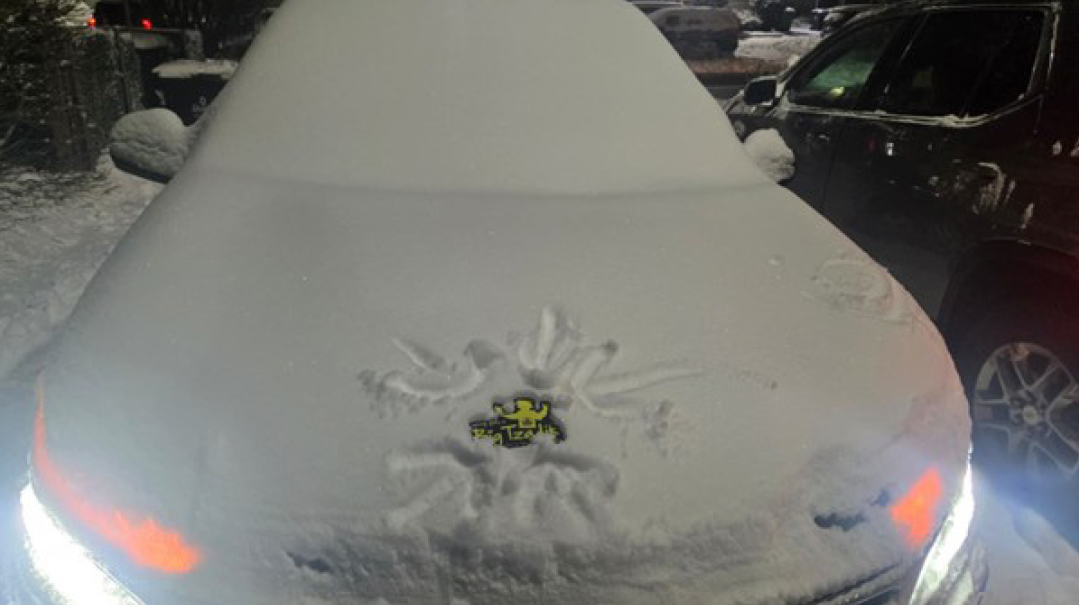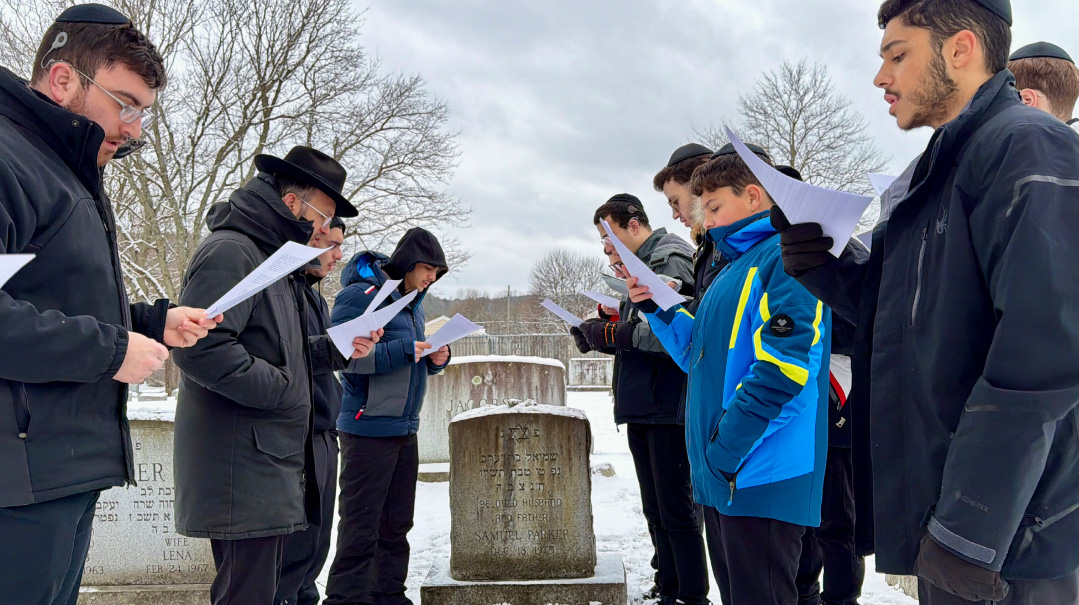The Moment: Issue 1020
| July 16, 2024Shattering all barriers and granting access to that reservoir of the sweetest waters in the world
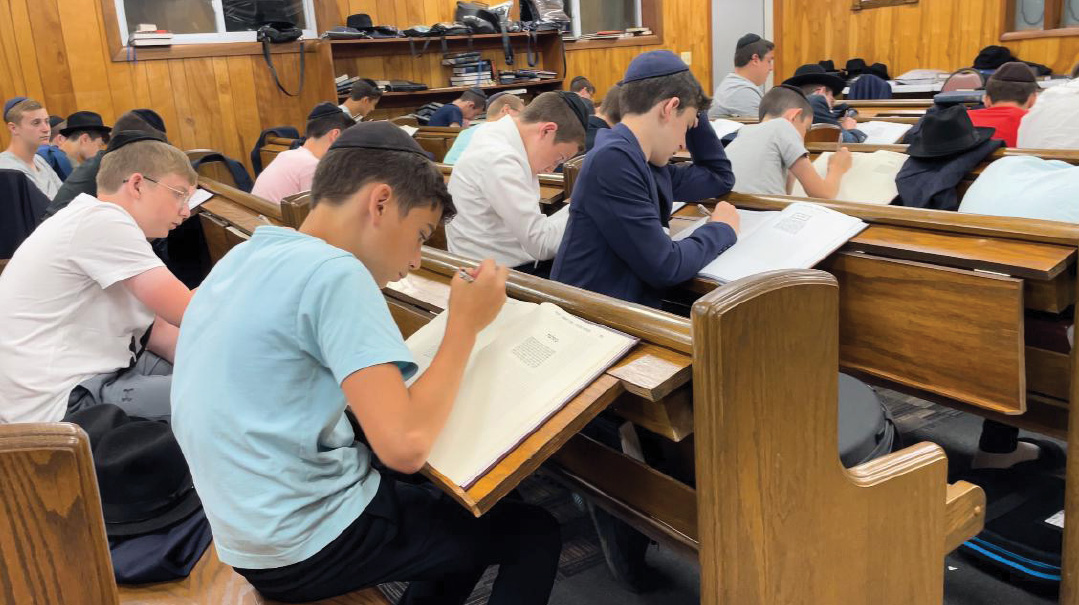
Rabbi Dovid Newman’s V’haarev Na initiative has led to the mastery of an incalculable number of dapei Gemara. The program encourages thousands of yeshivah students to dedicate themselves to review their learning again and again, and constantly write notations in their Gemaras. This allows one to “own” the masechta — shattering all barriers and granting access to that reservoir of the sweetest waters in the world. Many yeshivos have incorporated this model into their own curriculum.
And when the yeshivos’ semesters end and the boys head off to camp, it’s with the excitement for a fun-filled summer blended with sadness. Saying goodbye to a zeman charged with the energy of V’haarev Na isn’t easy.
But not anymore. Camp Munk’s Rabbi Feigelstein reached out to Rabbi Newman to help incorporate the first — of what will hopefully soon be many — V’haarev Na camp programs. This specific program is titled “Tamid B’Simcha,” a name that carries a dual reference. The limud is Maseches Tamid — and, because it will bring so much joy, it is justly called “Tamid B’Simcha.”
But the general interpretation of the words is equally applicable. “Tamid b’simchah” means “always happy.” The vision of the camp, and the program, is to accomplish exactly that — to bring its participants to a place of sublime happiness through the exhilarating rigor of limud haTorah. Through V’Haarev Na, one can truly become tamid b’simchah.
Here, Rabbi Newman is shown speaking to the campers, sharing with them the outline of what will make their summer camp experience the sweetest one they ever had.
Along with it is a photo of the campers doing exactly that.
No Such Thing as a Mistake
Rabbi Nechemia Hoffman, the dynamic director of outreach in Columbus’s Beth Jacob shul, spent an exhilarating week in Eretz Yisrael as part of an Ohr Somayach Jewish Learning Exchange. Along the way, he was zocheh to see three flashes of obvious Hashgachah pratis.
The hashgachah began even before the trip did.
A student slated to join the trip shared with Rabbi Hoffman that he would begin putting on tefillin daily. The problem was that he didn’t own a pair. Rabbi Hoffman had dealt with such scenarios before and had developed a relationship with a philanthropist named Jacob who could be relied upon to sponsor a pair of tefillin when the need arose. Rabbi Hoffman would typically send Jacob a text, but for some reason he can’t explain, chose to place a phone call instead. He reached for his phone, searched for “Jacob” in his contacts and hit “call.”
The call was promptly answered, but Rabbi Hoffman did not recognize the voice on the other end. He then realized he’d called the wrong Jacob. This Jacob on the other line was a man he barely knew; he had met him once while the fellow was on a business trip in Columbus some months prior.
Rabbi Hoffman hung up immediately, but Jacob called back.
“I’m so sorry,” Rabi Hoffman said, “I called the wrong Jacob, it was a mistake.”
“There’s no such thing as a mistake,” the man responded evenly. “Please tell me why you called.”
“Um, I mean, well, do you even know who I am?” Rabbi Hoffman stammered.
“Sure, I do!” the man replied. “You’re Rabbi Hoffman from Columbus. Listen, since I have you on the line, I have a question for you. Would you know anyone who needs a pair of tefillin?”
Rabbi Hoffman almost dropped the phone.
“W-what? Why do you ask?”
“I remember when I was in Columbus you mentioned that you buy tefillin for people on occasion. I would like to buy someone tefillin. Do you know anyone who needs?”
Rabbi Hoffman assured him that yes, he did actually know someone who could use a pair of tefillin.
The next incident of hashgachah was when the group went to a hospital to visit injured soldiers. One of the soldiers they came across was Aviram. He’d been the subject of a video posted by Hamas, showing an RPG being shot directly at him. Tragically, he lost his arm in the incident, but otherwise, is alive and well.
When one of the mentors on the trip, Jonathan Silverberg of Chicago, Illinois, heard the name “Aviram,” he turned to the soldier’s sister who was also visiting him at the time and asked curiously,
“Aviram? What’s your mother’s name?”
“Ziva,” the sister replied.
Jonathan jumped. “Aviram ben Ziva?!” he exclaimed. Then he explained, “When the war first began, someone distributed names of soldiers to daven for. They were arranged in alphabetical order, and I took a block of ‘Avirams.’ One of them is ‘Aviram ben Ziva.’ I’ve been davening for you three times a day.”
And with that, Aviram and Jonathan embraced, two brothers connected for eight months through that unparalleled bond called prayer.
AS part of the trip’s itinerary, the group attended a lecture at Yeshivas Ohr Somayach on the topic of the first of the Ten Commandments, “Anochi Hashem.” The lecturer then asked: “Ten? Do you know what the other Commandments are?” The attendees found the commandment of “Honor your father and mother” to be of particular interest and peppered the lecturer with questions about it.
The next segment of their mission led them through Meah Shearim neighborhood. As they walked along, Rabbi Hoffman realized that they were about to pass the apartment of famed mashpia and mekubal, Rav Gamliel Rabinowitz shlita. Not wanting to miss the opportunity, he knocked on Rav Gamliel’s door. The rebbetzin answered.
“The Rav is just down the block,” she said. They group walked down the block and, sure enough, saw Rav Gamliel. Rabbi Hoffman introduced them, explaining the purpose of their visit, and Rav Gamliel bestowed his heartfelt blessings upon them.
“Is there any message the Rav has for the group?” Rabbi Hoffman asked him.
Rav Gamliel looked at them. “Kabeid es avicha v’es imecha,” he said. “Honor your father and mother.”
(Originally featured in Mishpacha, Issue 1020)
Oops! We could not locate your form.

